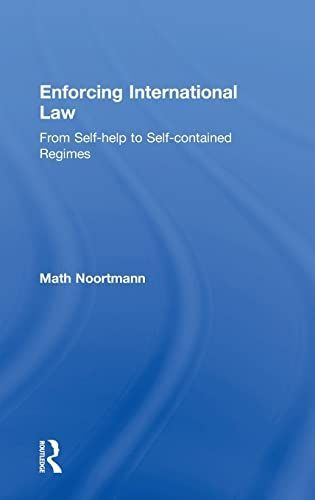
Enforcing International Law From Self-help to Self-contained Regimes
Until recently, the fundamental link between two basic concepts in international law, namely the right to self-help and the obligation to settle disputes by peaceful means, has been neglected in doctrine and practice. The main issue is that international law traditionally recognizes the right of states to safeguard their own rights by resorting to countermeasures as well as the obligation to settle their disputes by accepted and recognized diplomatic and judicial procedures. Both concepts are based on their own merits, which are assumed to be valid in contemporary international law. It is the primary purpose of this study to determine which rules and principles govern the relationship between the two concepts. The book's major findings arise from an analysis of scholarly work, supported by examples from five different case studies. Drawing insights from legal as well as political science, it will be a valuable resource for students, academics and policy makers in international law, international relations and related areas.